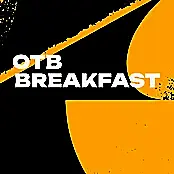League of Ireland football deserves better than the current status quo and with the Football Association of Ireland and the Professional Footballers’ Association of Ireland embroiled in a bitter public spat over the last week - we should look to the Icelandic approach if the game here is to fulfil its potential.
The domestic league was once described by FAI CEO John Delaney as a ‘difficult child for the organisation’ and the attitudes shown this week by the association towards the PFAI have highlighted the indifference that still exists.
However, it need not be this way and with a culture of investment and support - the League of Ireland could prosper way beyond its current standing.
Ireland and Iceland are two islands on the edge of Europe and have more in common than you might think - both have semi-professional football leagues, both suffer from a player drain east and both are competing against live foreign football on TV.
Former Spurs and Bolton player, Gudni Bergsson, is the current President of the Icelandic Football Association and speaking exclusively to offtheball.com ahead of the World Cup, he revealed how the nordic country has seen its investments in the grassroots level transfer into their club teams and on to the national side.
“Now and in recent years, especially with the success of our men’s team, for instance, a lot of limelight has gone on to the national team and I think the top leagues have felt that a little bit - the onus and limelight has been on the national team so we’re trying to encourage our general football public to obviously go to the games and support the teams. We have been stating that all the success is really due to great work at club level.
“It starts with the grassroots and then obviously into the leagues and we’re emphasising that - this is where it all starts. And possibly because that we have been successful with our youth football - the fact is now that we’ve got around 100 players playing professionally in Europe.”
The success of the national side has been the culmination of years of planning and strategic investment - not only in infrastructure - but also in people.
“What we have emphasised on in Iceland, especially in recent years, is a good educational system for our coaches. Most of our coaches have either 'B’ or 'A’ UEFA licences which we think are very important so our players from a young age get good coaches which are educated - so I think that’s very important.
“We take care of our leagues, operating them and we have got quite an extensive league structure. We’ve got five men’s leagues and three women’s leagues and about 100 league teams.”
Similar to the League of Ireland, Iceland’s top league is sponsored, by Pepsi at present, but unlike Irish football, they also have a TV rights deal and this money is filtered back to the clubs to continue their development.
“We’ve got the rights for the league but we’re in the process of changing that so we’re in a more cooperative [system] with the clubs. So, the last deal was done three years ago - all the proceeds go the clubs - they get every penny, or every Krona, of that contract. And then, the broadcaster gets the rights to use the rights for the league, the naming rights to sell them on to a big company here in Iceland.
“We work together with the teams, the league teams, but they get all the proceeds. We pay all the refereeing costs - every Krona of that. So we pay for the running costs of the games, if you like, the FA, and they get all the proceeds and that’s the way it’s done here,” he added.
Problems do exist in Iceland but the association do their best to support the clubs. The league is run without a ‘participation fee’ and a significant amount of the profits generated by the national team are fed back to the domestic clubs.
“We’ve got similar problems as in Ireland - perhaps our stadiums and facilities aren’t that great or extensive because our clubs are that small and so the stadiums are small,” Bergsson explained, “So then the facilities aren’t, in comparison with the bigger stadiums, as good as we would like.
“We take 50% of the profits from the Euro (2016) and then 75% of the profits from the World Cup and pay it out to our clubs.
It’s about £8.5 million we’ve paid in recent years from ‘16, ‘17 and now ‘18.
We like to think that we are making sure that this success is benefiting the clubs as well.”
What the League of Ireland clubs wouldn’t give to receive even half the support of their Icelandic counterparts.
Download the brand new OffTheBall App in the Play Store & App Store right now! We've got you covered!
Subscribe to OffTheBall's YouTube channel for more videos, like us on Facebook or follow us on Twitter for the latest sporting news and content.








